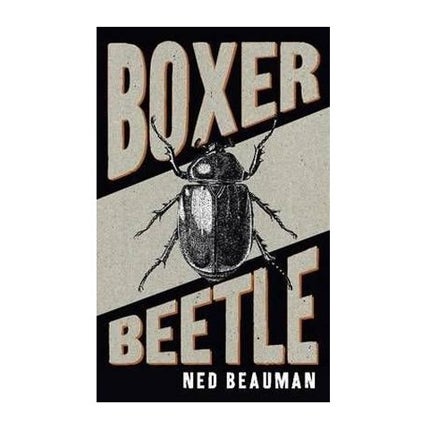Boxer, Beetle, By Ned Beauman
A debut with the whiff of a cult classic

This novel throws political correctness on to a bonfire before fandangoing gleefully all over the ashes.
Its narrator is Kevin "Fishy" Broom, a dedicated collector of Nazi memorabilia. Kevin's the kind of guy who fantasises about the birthday presents Goebbels received from his Führer. He revels in his hobby's thrilling contradictions. When you pick up an SS dagger, "you feel as if you're doing something terribly wrong," even though you know "you're doing no harm to anyone".
What you notice about Kevin first, however, is appalling body odour. His body cannot break down trimethylamine, the chemical that gives the stink to rotting fish and bacterial infections of the vagina: hence his nickname. Accordingly, he spends lots of time online, in between running errands for a sociopathic property developer, Horace Grublock. When Grublock asks him to visit a private detective, Kevin discovers his corpse, as well as a mysterious letter from Adolf Hitler. The letter is tied up with the fate of Seth "Sinner" Roach, a gay Jewish boxer of the 1930s from London's East End.
In a parallel historical narrative, Beauman presents Sinner's story. Despite being less than 5ft tall, nine-toed and a chronic alcoholic, Sinner is a brilliant pugilist. He falls in with Philip Erskine, an entomologist who specialises in beetles, but is obsessed with eugenics and determined to make a study of the exceptional half-pint fighter.
As if all this wasn't enough, Beauman hurls in backstories around the mythic origins of the Nazi party, invented languages, dissonant music, town planning and much else, so over-egging his literary pudding that it rises into a monstrously overblown soufflé of cerebral idiosyncrasy. There is ferociously imaginative language to match. Erskine's fellow entomologist Gittins "had a mole on his neck with six long wiry hairs sticking out of it, as if a spider had been shot from a catapult and embedded itself in his flesh".
Beauman skips with panache between his dreadful version of the present and the macabre absurdities of a period when cock-eyed science and rabid anti-Semitism provided a toxic cocktail for the upper classes. His killer irony evokes early Evelyn Waugh, and his lateral take on reality Will Self at his unsettling best. This is humour that goes beyond black, careening off into regions of darkness to deliver the funniest new book I've read in a year or two.
Join our commenting forum
Join thought-provoking conversations, follow other Independent readers and see their replies
Comments
Bookmark popover
Removed from bookmarks